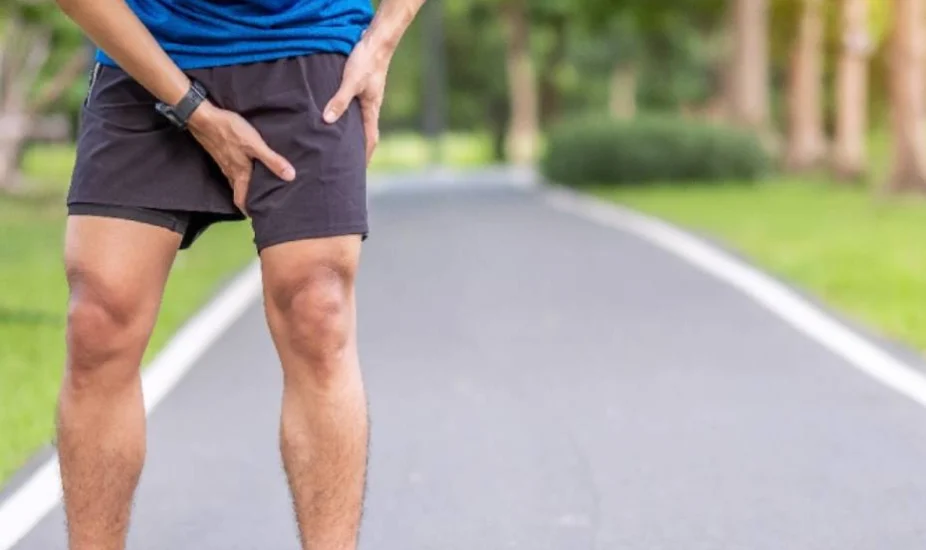Despite its misleading name, a “Sports Hernia” is not a hernia at all. This painful groin condition is actually called Athletic Pubalgia and is a result of torn abdominal muscles that attach to the pelvis.
Traditional Hernia vs. Sports Hernia
A traditional hernia (commonly inguinal and umbilical most common) is a result of an internal organ that pushes through a weakened muscle or tissue to protrude outwards.
- A traditional hernia is usually found in your abdomen between chest and hips but can be as low as upper groin or thigh.
- Symptoms typically include: a lump in the affected area that goes away when you lay down.
- Risk factors: anything that may weaken abdominal wall such as: obesity, history of pregnancy, diarrhea or constipation, persistent coughing/sneezing, family history, smoking, or frequent lifting of heavy objects without abdominal bracing.
- Overtime, a sports hernia can lead to an inguinal hernia due to weakened abdominal muscles
- Inguinal hernia: 75%-90% of all hernias are within the inguinal canal where the thigh joint meets the abdominal wall.
A Sports Hernia is the result of torn tendons of any soft tissue (muscle, tendon, ligament) where they attach to the pelvis.
- Typically, this involves disruption to the abdomen (obliques or side abs most common) and there may be tearing to adductors (inner thigh muscle) where they attach to your pelvis
- Symptoms: Deep groin/ lower abdominal pain that is increased with exertion (cutting, running etc.), pain with sit up
- Usually caused by a muscular imbalance between your hip/thigh muscles and your abdomen
Why Would I Get a Sports Hernia?
Certain sports or activities predispose you to a sports hernia. These include those that involve running or explosive movements in combination with twisting, cutting, and/or frequent turns in any direction, such as:
- American Football
- Ice hockey
- Skiing
- Running
- Martial Arts
How Can Physical Therapy Help a Sports Hernia?
There are many things a physical therapist can do to help alleviate your pain and discomfort, while allowing your tissue (and those surrounding it) to heal and strengthen.
- Before Physical Therapy: REST!
- Soft tissue mobilization (massage)
- Restoration of range of motion
- Strength targeting for the core and hips to correct muscle imbalances
If you are suffering from a Sports Hernia, schedule an appointment online at one of our five local clinics. We have a talented and motivated staff ready to help you achieve your injury rehabilitation goals.

